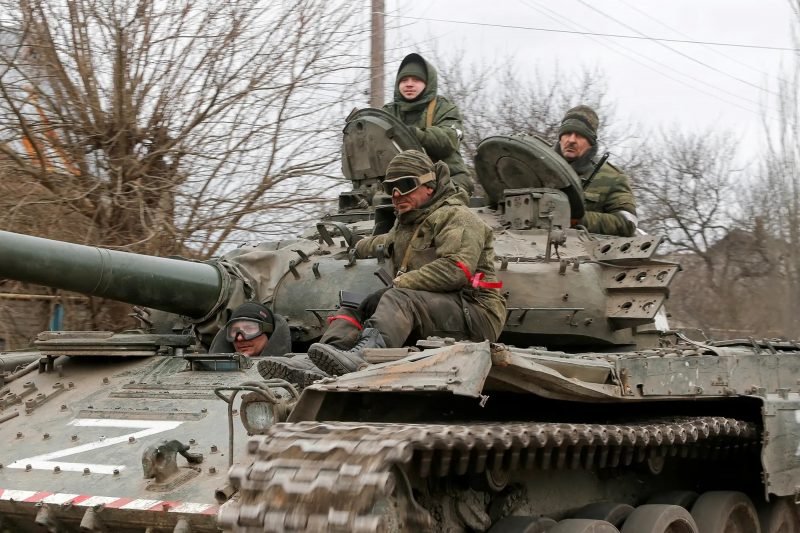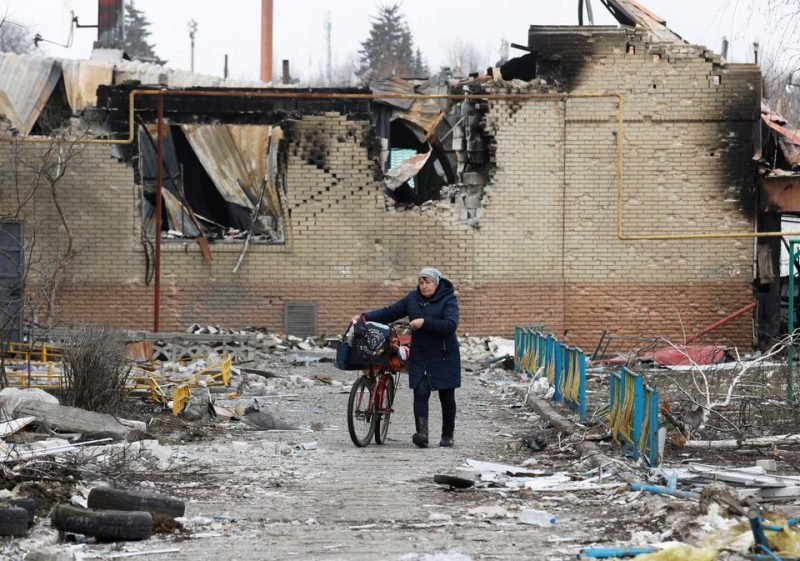Russia: too early to get the “paper tiger” tag

The Russian invasion of Ukraine stretches on even after two months bringing violence and destruction and damage to the economy of both the countries. Russophobes in the West seem to be pleased- the mighty Russian bear seems to be now looking like Koala as Russian losses continue to mount. The Western media has been traditionally biased against Russia and a mouthpiece for Washington’s propaganda against Moscow lost no time in stating that their once feared formidable enemy was just a paper tiger. The Soviet Union which drove back Hitler’s Wehrmacht back to Berlin, which could overthrow not so friendly governments in its sphere of influence with impunity during the cold war, competed with the USA in space and the arms race was finally a paper tiger that could not beat a much smaller country in its neighborhood.
A Paper Tiger?
Several theories have been floated, incompetence of generals, amateurish Russian conscripts, obsolete technologies, poor planning. But how credible are these assessments? After all, the West attributes American military failures like Afghanistan to local incompetence and downplays Russian prowess in defense sectors as outdated. Two questions need to be asked before we can conclude Russia to be a shadow of its former self–
- How credible are these claims of the Russian army being amateurish and incompetent?
- How fair are the comparisons of the Russo-Ukrainian war in comparison with American campaigns in Iraq, Libya, and Afghanistan?
A keen analysis of these questions shows that despite the invasion not going according to Putin’s plans, calling Russia a paper tiger is ridiculous.
Complexities in comparing Russo- the Ukrainian war with American campaigns in the previous two decades
Iraq, Afghanistan lacked a full-fledged professional military, and poorly developed infrastructure, which sharply contrasts with a much larger and more urban Ukraine which inherited a military that was a part of the military of the Soviet Union which influenced the quality of Ukrainian military traditions and planning. Ukrainian inheritance includes many Soviet-modeled aircraft, tanks, artillery, and most importantly the military traditions of the Soviet Union. The professionalism of the military is a crucial factor that determines the outcome of the war and even the survival of the state. Indian army inherited its professionalism, discipline, and ethics from the British Indian army which would go a long way to maintain the stability of the Indian state. It would ensure the Indian state’s survival against the larger China, wars with Pakistan, and many internal disturbances, given the multi-ethnic and multi-lingual composition of the state. Contrast this with Afghanistan which did not get sufficient time and mentorship to develop its armed forces. A much larger Afghan army had surrendered to the Taliban without putting up a stiff fight except for special forces which were trained in the US. This underlines the importance that professionalism, discipline, and ethics have on the morale of the troops.

A proxy war
The current conflict has become a proxy war between Russia and NATO, with Ukraine getting advanced weaponry, intelligence, and financial aid from the West. These were crucial as the Russo-Ukrainian war gets dissolved into a war of attrition. The Ukrainian military stocks and logistics are getting replenished with Western aid while Russia would soon begin to see shortages due to international sanctions. The current war has more similarities to the Vietnam war rather than Afghanistan or Iraq wars. It is the first war in recent times which involves a clash between two nations using modern weapons of warfare, rather than a clash between irregular or poorly trained forces.
Ukraine happens to be a democracy, not a dictatorship or oligarchy
Ukrainian resolve to resist, organize themselves in the civil militia, and volunteer for the war efforts changed the dynamics of the war. Unlike the US which overthrew unpopular dictators like Saddam Hussein and Ghaddafi, Russians attempted to overthrow a popularly elected government in Ukraine. Zelensky was a political newbie who attracted the Ukrainian masses across the ethnic divide and got elected. When the war broke out Ukrainians were united in fighting against the aggressor, something not seen on this scale in the recent wars. The underestimation of Ukrainian resolve might have fueled the Russian hopes for a quick victory and led them to miscalculate the risks.
Need to stop underestimating Russia
The belief that “this invasion proves Russia is just a paper tiger” is going to be a costly mistake for Europe or America. Nukes apart even their conventional forces are still a formidable threat, though Russian military capabilities are a shadow of their former self. Russian defense industry after going through a rough patch in the 1990s is back to competing with European and American industries. It happens to be the only country that is completely independent of the West to produce all its sophisticated weaponry. Russian cruise missiles and air defense systems are considered to be ahead of their American counterparts. Military engagements in Crimea, Georgia, Syria, and Chechnya show that the Russian military is still advanced and cannot be brushed off as Amateur or incompetent. Even in the Ukrainian invasion, Russia was able to achieve limited success. Russia was able to wrest control of Mariupol, and Kherson and was able to degrade Ukrainian Navy and Ukrainian air force to a large extent. Russia has also seized or blockaded most of the Ukrainian ports except for Odesa, making Ukraine essentially landlocked during the duration of the conflict. It is still early to be confident of a Ukrainian victory. The NATO and US need to engage with Russia to mitigate the Russian threat to Europe instead of sitting in false confidence which may prove risky in long run. West also needs to simultaneously negotiate for immediate peace instead of simply supplying weapons to Ukraine hoping to wear Russia off.



















